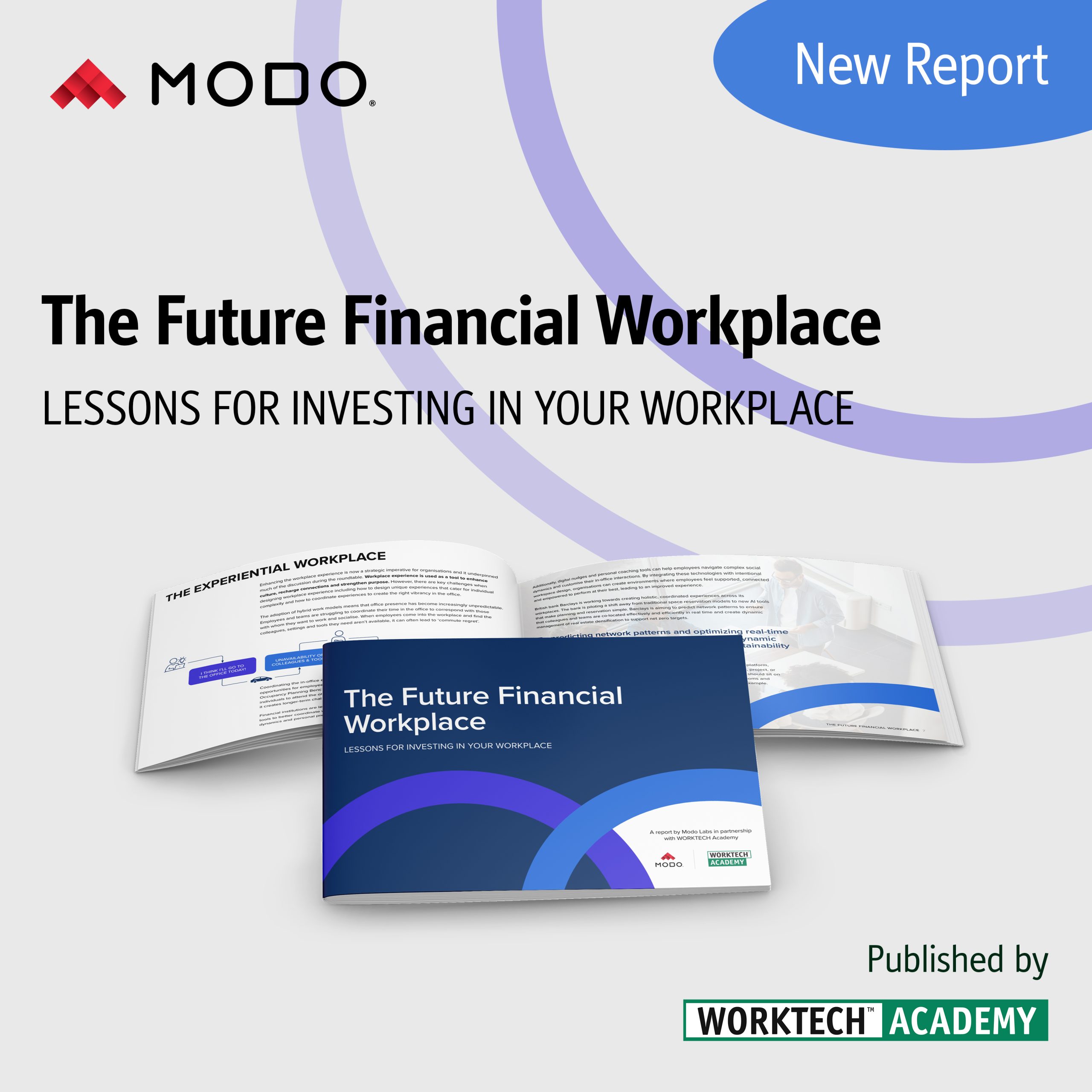Breaking the banking box: how financial workplace is busting boundaries
From AI-powered office planning to hospitality-driven employee experience, the Future Financial Workplace event in New York highlighted where the banking industry is heading next
Much of the public discourse around New York’s financial industry has recently fixated on return-to-office (RTO) policies, from JP Morgan Chase’s five-days-a-week mandate to Citi’s commitment to more flexible working. But on Thursday 27 February 2025, at WORKTECH’s Future Financial Workplace conference, the conversation offered a different perspective.
Gathered on the 29th floor of HSBC’s striking new offices in the renowned Spiral building at Hudson Yards, industry leaders from financial institutions such as JP Morgan Chase, HSBC, Scotiabank and Mastercard explored a more forward-looking question: how can financial workplaces evolve beyond policy debates to create environments that drive engagement, innovation and long-term business success?
Pushing boundaries
The financial workplace is no longer just a space for desks and screens. Offices are being reimagined as destinations that offer opportunities for connecting, socialising and getting work done. The event showcased several high-profile banks that are investing in high-quality amenities, hospitality-driven experiences, and spaces designed for social interaction and independent work.
From curated visitor experiences with dedicated ‘experience ambassadors’ to flexible event-driven spaces, the remit of the office is expanding to encompass destinations that enhance the performance and wellbeing of employees.
Philip Ross, Futurologist, CEO and Founder of UnWork echoed this in his presentation, highlighting LEGO’s headquarters in Billund and Booking.com’s European headquarters in Amsterdam as key case studies that are pushing the limits of workplace innovation. The LEGO campus uses its physical space to celebrate social gathering, employee achievements and bringing people together. It does this by allocating 70 per cent of its real estate to collaborative activities.
Booking.com has created a sense of destination by consolidating eight offices into one centrally located workplace. The workplace has incorporated cutting edge technology and heavily subsidised amenities throughout the building to entice employees into the office.
Simplifying data
The rise of workplace analytics is changing how real estate decisions are made. Companies are moving beyond occupancy tracking and badge swipes, using AI-driven insights to shape real estate strategy. New technologies, including ultra-wideband tracking, ultrasonic sensors, and AI-powered meeting recommendations, are helping organisations understand how employees interact with space.
At a time where workplace leaders are being challenged to justify every investment and prove that real estate can drive engagement, collaboration and performance – not just occupancy – there is a greater need to collect data to measure the return on investment. The key challenge, however, is not collecting data – it’s turning it into a powerful narrative which has actionable results. By aligning qualitative feedback with quantitative insights, financial institutions are beginning to shape workplaces based on real employee behaviours rather than assumptions.
Balancing functionality with experience
One of the biggest myths in financial real estate is that the workplace must be purely functional. Industry leaders are now proving that experience-led spaces can coexist with operational efficiency. Many are moving towards flexible neighbourhoods rather than assigned desks, allowing employees to choose spaces that best suit their working styles. Others are integrating hospitality-inspired design principles, with concierge-style services and vibrant communal areas that bring people together. The goal is to strike a balance, ensuring spaces that support both productivity and human connection.
‘Financial real estate should favour workplaces that feel more like destinations than desk farms…’
The blend of workplace with hospitality is also seeing another trend emerge: the office as a state-of-the-art event space. Increasingly, banks are investing in event spaces to host clients, events and internal meetings to showcase their spaces. For some banks, the role of event hosts extended to the workplace experience teams, whereas others have created completely new hospitality teams focused solely on planning events.
As financial institutions navigate the transformation to new ways of working, there was a clear message emerging from the conference: the most successful workplaces will not be those that dictate where employees should work, but those that create environments people actively want to be part of. To achieve this, the industry needs to ditch the traditional ‘banking box’ in favour of workplaces that feel more like destinations than desk farms.








